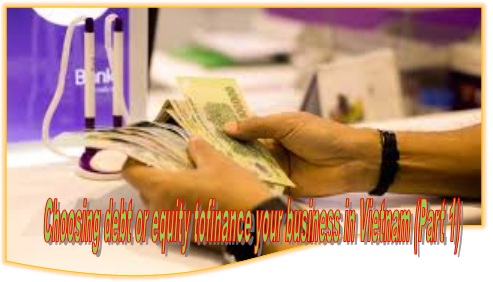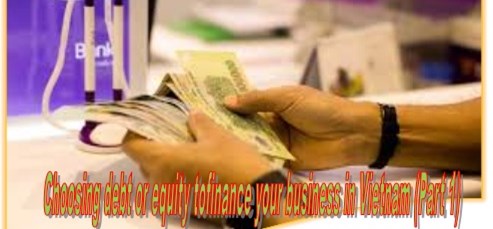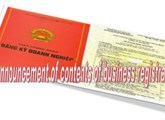Choosing debt or equity to finance your business in Vietnam (Part 1)
Apart from my recent topics about taxes (CIT, VAT, etc) in Vietnam, today I switch to financing decision in the context of companies doing business in Vietnam.
Financing decision involves deciding on the mix of equity and debt in the capital structure of a company.In this respect, the CFO of a company has two basic choices, ask for a loan or sell a stake in his company to raise capital. Basically, the question is debt or equity?
Debt or Equity?
Advantages of debt financing
Here, I describe some advantages of debt financing in comparison to equity financing.
Tax shield
From Article 6, Circular No.78/2014/TT-BTC dated June 18, 2014, interests on loan used for business are deductible expenses.
Mentioned at Article 11, Circular No.78/2014/TT-BTC, the standard rate of corporate income tax in Vietnam is 20%.
Therefore, companies in Vietnam can get a tax benefit (tax shield) at 20% of the interests paid to lender. In contrast, dividends to equity holders are not tax deductible.
Cheaper cost
Debt is usually cheaper than equity, since debt payments are obligation so debt lenders face limited risk. Further, in the event of a company going bankrupt, debt holders have the first claim on company assets (collateral, mortgage), increasing their security(Article 53, Law on Bankrupcy No. 51/2014/QH13, dated June 19,2014). Equity holders are taking more risk, hence they need to be compensated for it with higher returns.
Upside limited
Debt holders have an upside limited to the fixed rate of interest they receive every year, unlike the equity holder who has a stake in the business and can participate in the potential upside in retain earnings.
Foreign invested company which has fulfilled responsibilities before theVietnam State, submitted annual audited financial statements and finalized corporate income tax with the tax authorities in charge, can distribute retain earnings to its owners, repatriate annual profit to the home country of its owners. Also, foreign investors can repatriate profits upon termination of direct investing activities in Vietnam (Article 4, Circular No. 186/2010/TT-BTC dated November 18, 2010).
Control
Debt does not dilute your ownership (as opposed to equity), so using debt financing, you still keep control of your business.
The Vietnam State recognises and protects the ownership of assets, invested capital, income and other lawful rights and interests of a company and its owners (Article 5, Law on Enterprise No. 68/2014/QH13, dated November 26, 2014).
So you may see, debt does have some attractive advantages, but be carefully, it does not without drawbacks. To find out more, please follow my next writings on this topic./.

Choosing debt or equity tofinance your business in Vietnam (Part 1)
| Prepared by: Thi-Ha Nguyen, ACCA | DMS Law firm in Vietnam Approved by: Director Lawyer Do Minh Son |
RELATING ITEMS
Conversion of shareholding companies into limited liability companies
20 May, 2020// Group: LAW ON ENTERPRISESConversion of a shareholding company into an LLC
Consolidation vs. Merger of companies ?
20 May, 2020// Group: LAW ON ENTERPRISESDifferences between consolidation and merger of enterprises
Is there a foreign ownership cap in a company in Vietnam ?
20 May, 2020// Group: LAW ON ENTERPRISESSet up 100% FDI company in Vietnam in the form of a single member LLC
Public announcement of enterprise registration information
20 May, 2020// Group: LAW ON ENTERPRISESLawyers give advice about making a public announcement of enterprise registration information
Choosing debt or equity to finance your business in Vietnam (Part 3)
27 Feb, 2020// Group: LAW ON ENTERPRISESDMS Law office in Da Nang city, Vietnam. Thi-Ha Nguyen, ACCA. Topic: Debt or Equity?







